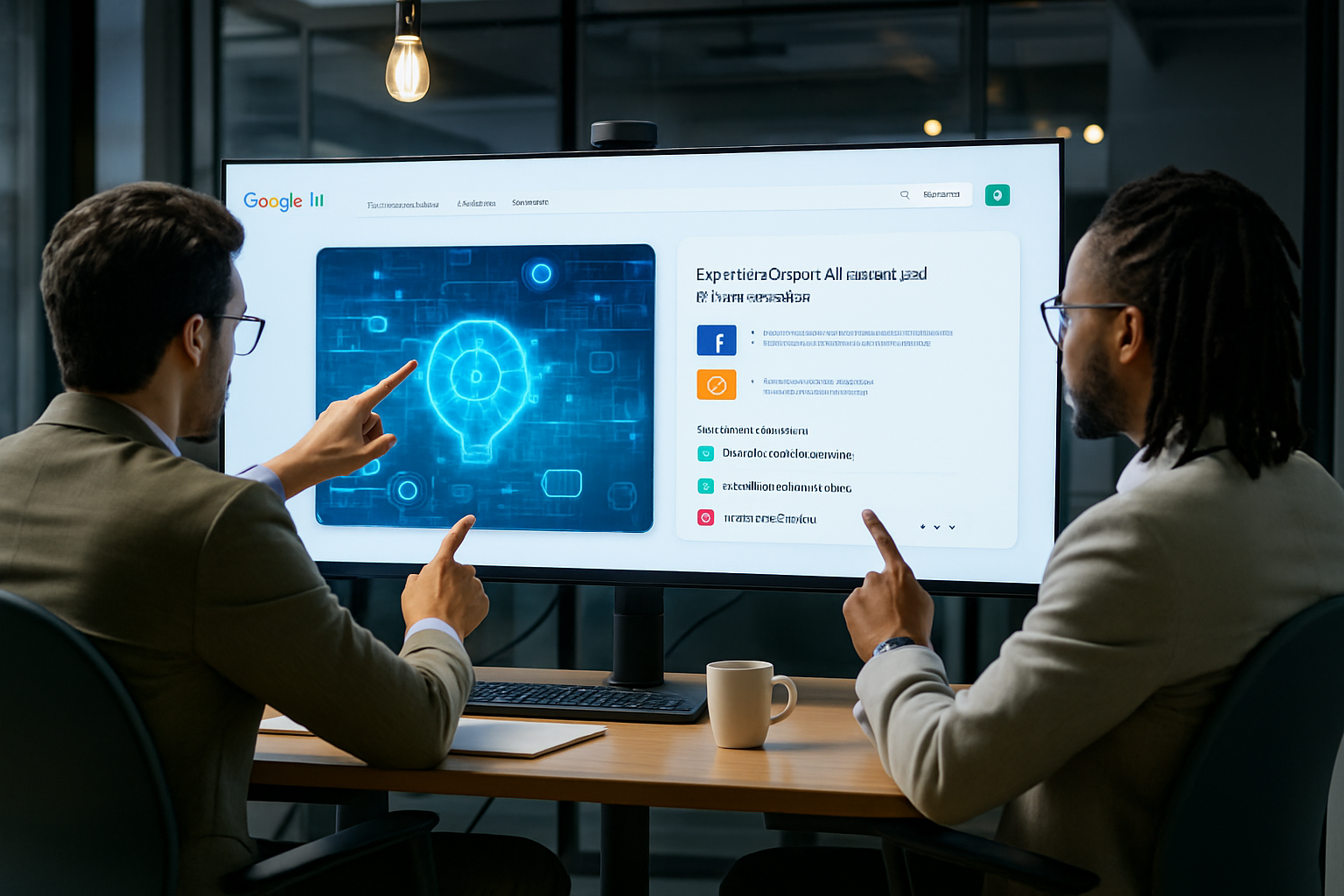The Rise of AI-Generated Answers as Trusted Sources in SEO
Search engines are increasingly integrating artificial intelligence to deliver answers directly within search results. AI-generated responses are gaining trust as reliable sources, influencing how users access information online. As AI models improve, they enhance the speed and relevance of search results, shaping user expectations for quick, accurate answers without navigating multiple pages. This shift presents challenges and opportunities for content creators and marketers aiming to maintain visibility and trust in a digital environment where AI plays a central role in information delivery.

Understanding SEO and AI-Trusted Answers
Traditional SEO focuses on optimizing website content to rank higher in search engine results through keyword targeting, backlinks, and user experience. The integration of AI is transforming this approach. Advanced language models now provide concise, authoritative answers directly in search results, allowing users to obtain reliable information instantly without clicking through multiple links. This changes how visibility and engagement are measured.
AI’s ability to synthesize vast data and present it coherently builds trust in these answers. Search engines rely on AI to interpret user intent more accurately and deliver personalized, precise responses. Content creators must shift from simply ranking high to ensuring content is structured and credible enough to be selected as a source for AI-driven snippets. This requires clarity, authority, and factual accuracy.
This change raises questions about transparency and control. While AI improves user experience by providing quick answers, it can obscure original sources, potentially reducing website traffic. Content creators should produce content that aligns with AI criteria for trustworthiness, emphasizing expertise, up-to-date information, and formats easily digestible by AI. Understanding AI’s role in SEO is essential for maintaining influence and relevance online.
The Integration of AI-Generated Answers in SEO
AI-generated answers are becoming central, trusted sources within search results. Search engines now prioritize context, credibility, and user intent beyond traditional ranking factors. AI synthesizes complex data into clear, concise responses, reshaping user expectations for immediate, reliable answers and reducing the need for extensive browsing.
Content strategies must evolve from keyword and backlink optimization to educating AI systems effectively. This involves demonstrating expertise and presenting information in formats AI can interpret and trust. SEO professionals are expanding their roles to build long-term trust with AI algorithms, delivering accurate, authoritative content that meets AI’s criteria for recommendation.
For digital marketing, brands must optimize their entire digital presence to support AI’s understanding and recommendation processes. This includes content tailored for every stage of the user journey, ensuring the brand is recognized as credible and reliable. Maintaining visibility and authority depends on how well brands align with AI’s standards for clarity, trustworthiness, and relevance.
Frequently Asked Questions About SEO and AI-Trusted Answers
How does AI impact traditional ranking methods?
Keywords and backlinks remain important, but AI’s interpretation of context and user intent requires content crafted with clarity and authority. The focus shifts to producing well-structured, factually accurate information that AI can analyze and trust.
What effect do AI-generated answers have on website traffic?
Concise AI responses on search pages may reduce clicks to original content, lowering organic visits. Content creators should build a strong digital presence signaling expertise and credibility across channels to increase the chances of being selected as trusted sources.
How can content be optimized for AI-driven search features?
AI prioritizes relevance, accuracy, and clear presentation. Well-organized content using precise language, up-to-date facts, headings, and lists improves the likelihood of being featured. SEO professionals must bridge human readers and AI algorithms by creating content that satisfies both.
What is the future role of SEO as AI evolves?
AI offers an opportunity to refine content strategies and deepen brand-audience relationships. Focusing on trustworthiness and transparency positions content as authoritative voices recognized by AI. Ongoing attention to quality and relevance ensures content remains valuable as AI shapes information access.
Conclusion
AI-generated answers are reshaping how information is accessed and valued online, prompting content creators and marketers to adapt SEO strategies toward clarity, authority, and trustworthiness. Success depends on producing well-structured, accurate, expert-driven content that meets user needs and AI criteria. This shift offers a chance to build stronger audience connections by prioritizing transparency and relevance, ensuring brands remain visible and credible in a digital environment influenced by AI-powered search experiences.
For more insights, read the original article on Search Engine Land. As noted by the author, “AI’s ability to synthesize vast data and present it coherently builds trust in these answers,” highlighting the critical role of AI in shaping the future of SEO.













.png)

